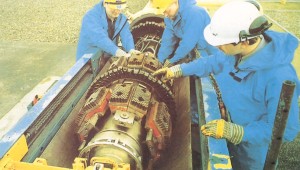How Hastelloy C276 is better than other alloys in Hastelloy family
High temperature alloys are designed for structural services at temperatures 700oF to 1800oF, for example, in the hot zones of aircraft gas turbine engines. These alloys are made of nickel with chromium added to achieve oxidation resistance and other elements are added for solid solution strengthening and for precipitation from solid solution. Strength, creep resistance and scaling resistance are needed.
The high temperature gas turbine alloys are special austenitic stainless steels. Most modern high temperature alloys do not contain vanadium, as it has a potential to promote sigma phase development that is embrittling and adds nominally or negligibly to the strength or stability of alloys. High temperature strength Hastelloy C276 has main applications in the chemical industry in the production of different acids and salts. Various nickel base alloys are developed for better heat resistance for line pipe applications.
Hastelloy C276 is a versatile nickel base super alloy with better overall corrosion resistance as compare to other alloys. It offers outstanding resistance to pitting, crevice corrosion as well as stress corrosion cracking. The alloy also has excellent resistance to oxidizing aqueous media including wet chlorine and mixtures comprising of nitric acid or oxidizing acids with chloride ions.
Hastelloy C276 has wide applications in the production and repair of hot forming tools and for oxidation and corrosion resistant coatings. The alloy is used in the manufacture and repair of drop forging dies, hot forming dies, pump impellers, retorts and valves. It can also be used for joining special alloys to itself or to stainless steels. The application area of Hastelloy C276 includes pumps, valves, pipework and vessels for operating in severe environments in chemical process plants, also in equipment for flue gas desulfurization and critical equipment in offshore oil and gas production.
Hastelloy C76 is hard to machine because of its high strength and low diffusive properties at elevated temperature. The presence of chromium and molybdenum in high concentration provides this alloy excellent resistance to pitting and crevice corrosion. It is thus, used in petro-chemical industries, marine, chemical industries, filters, evaporators, pipes and flanges.
Acting as a filler metal, Hastelloy C276 is used for MIG and TIG welding of Hastelloy C and itself to stainless steel or other nickel base alloys. Its excellent resistance to pitting, stress corrosion cracking and oxidizing conditions up to 1900oF make it fit for frequently use in welding the joints on steel in various industries. This alloy offers outstanding resistance to a wide range of chemicals including corrosive effects of wet chlorine gas, hypochlorite and chloride dioxide solutions. Other applications include hot contaminated mineral acids, solvents, and solutions contaminated by chlorine, chlorides, dry chlorine acetic, ferric acids, seawater and brine solutions.
Alloy C276 offers higher corrosion resistance over other Hastelloy alloys without the need of post-weld heat treatment, it is because of its low carbon and silicon content. The reduced carbon and silicon content minimizes the precipitate development in the heat affected regions, providing a highly reduced micro carbide particle density and helping the enhance the corrosion resistance of this alloy. Hence it offers better service in aggressive chemical conditions than other alloys in Hastelloy group.


